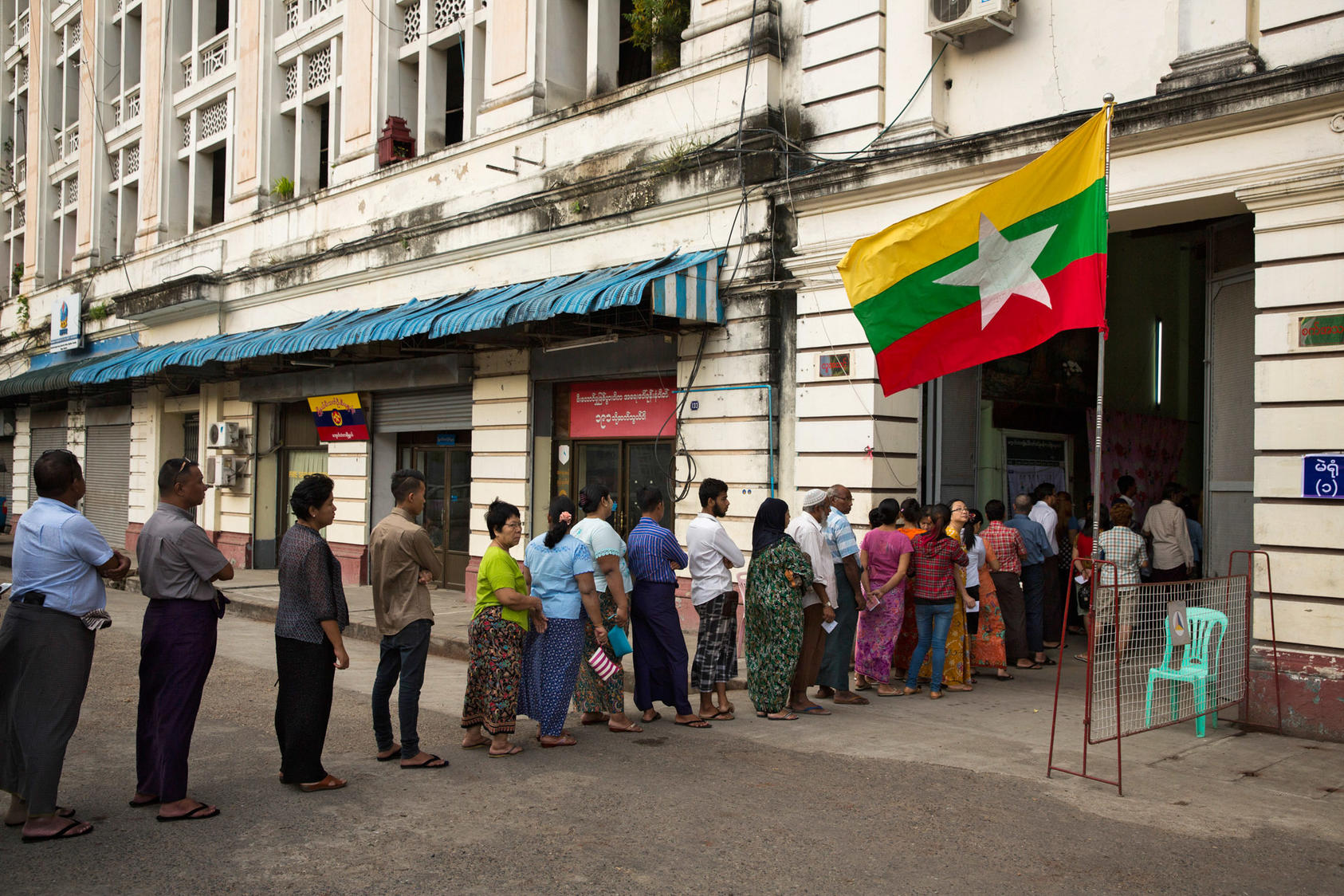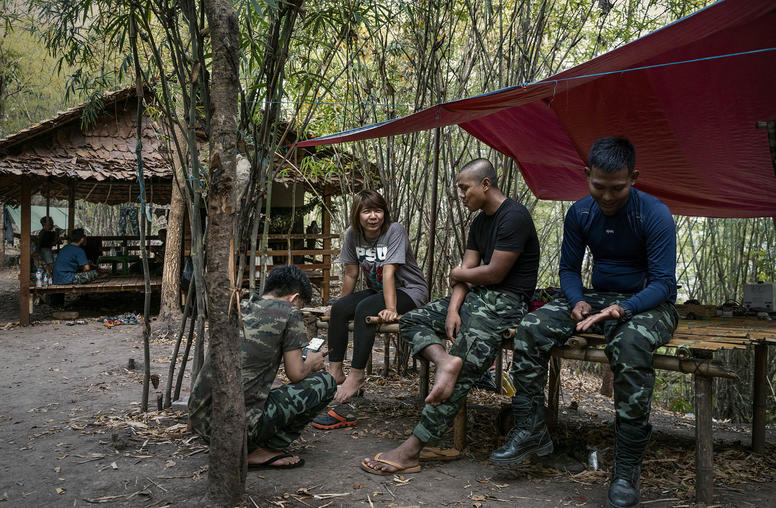Amid Transition and Conflict, 70 Years of U.S.-Burma Ties
Diplomats Examine U.S. Role and Current Events in Historical Context
This event will not be held as scheduled. We apologize for the inconvenience. Please sign up for information about our next Burma event. Like today, a historic transition and efforts to negotiate peace with minority groups in the borderlands marked the early years in Burma after it first established diplomatic relations with the U.S. 70 years ago this month. This time, new challenges have emerged, too, including the conflict involving the Muslim Rohingya minority. Join the U.S. Institute of Peace on September 18, as Burma’s Ambassador U Aung Lynn and Deputy Assistant Secretary of State for Southeast Asia W. Patrick Murphy open a discussion placing current events and U.S. policy into historical context.

When the two countries agreed to exchange ambassadors in 1947, Burma was on the verge of a transition from colonial rule to independence and in the midst of negotiating the formation of a federal union with minorities in the borderlands. After a downgrading of U.S.-Burma ties from 1990 to 2012, relations are back on track. Burma is once again making a transition, this time from military rule to democracy, and negotiating an end to conflict with border-area minorities through a nationwide peace process. In Rakhine state, conflict involving the Rohingya has become increasingly complex and this month reached unprecedented levels of violence and displacement.
The opening speakers and a panel of former diplomats who lived through and shaped changes in the relationship will take a historical look at the U.S. role in democratic governance and the prevention and resolution of conflict in Burma.
Speakers
Ambassador U Aung Lynn, Opening Remarks
Ambassador of Burma to the United States
W. Patrick Murphy, Opening Remarks
Deputy Assistant Secretary for Southeast Asia, U.S. Department of State
David Steinberg
Professor, Georgetown University
Priscilla Clapp
Senior Adviser, USIP
Ambassador Derek Mitchell
Senior Adviser, USIP



